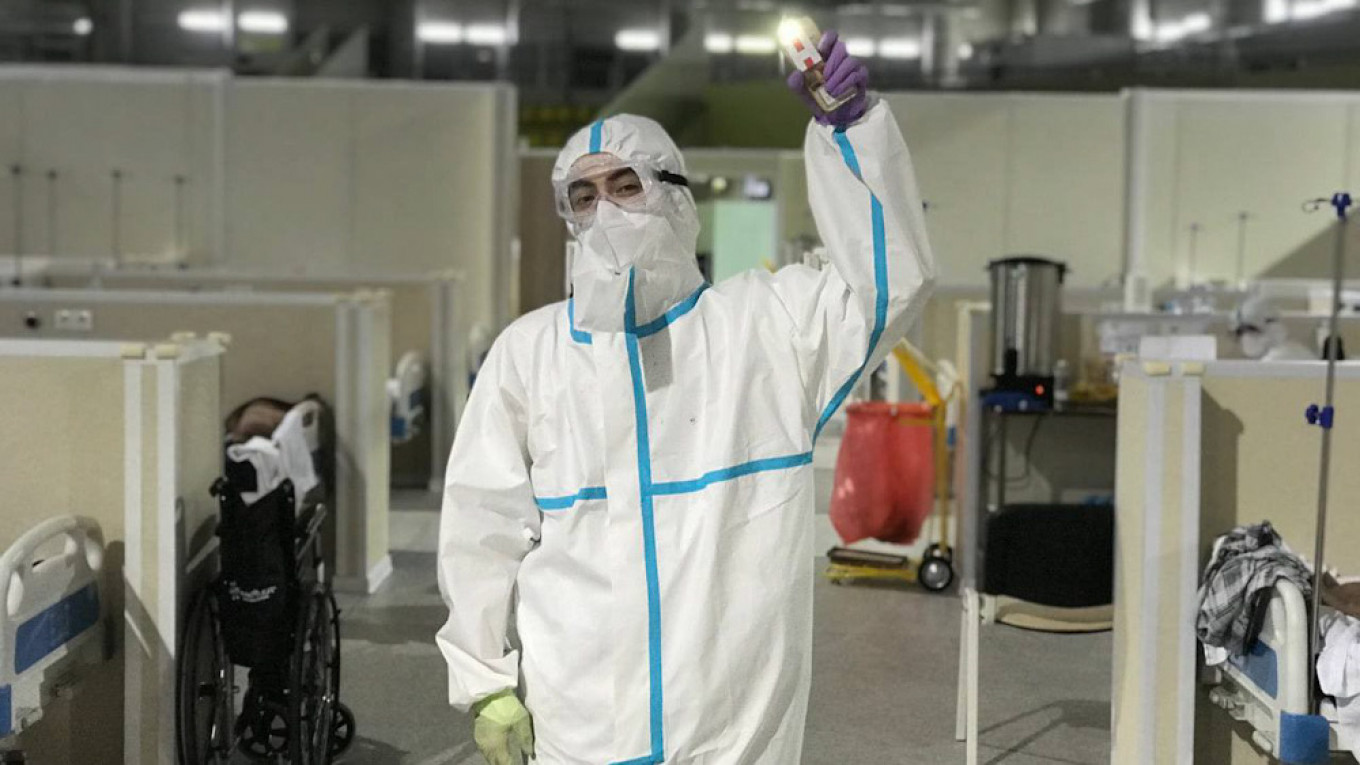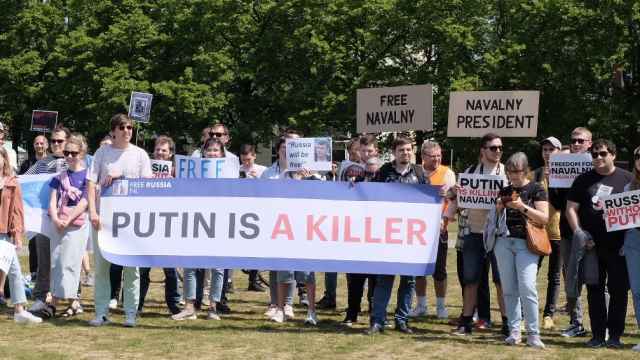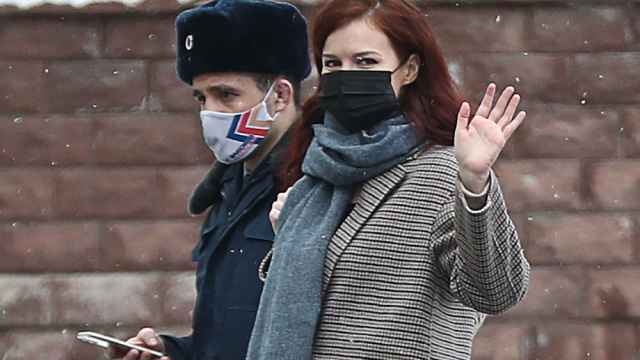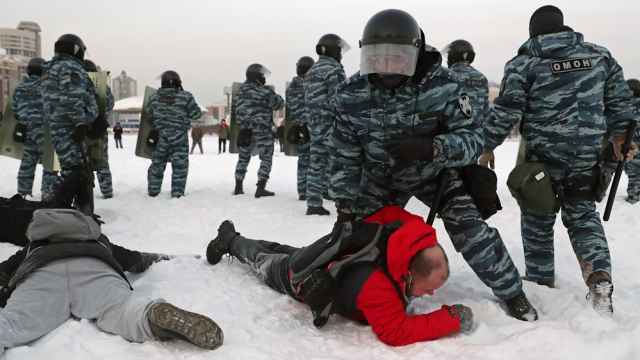A Moscow coronavirus hospital medic said he has been fired for joining a flashlight protest in support of jailed opposition leader Alexei Navalny while wearing his protective gear.
Saidanvar Sulaimonov was among the tens of thousands to share photos of themselves holding up phone flashlights Sunday in a show of muted solidarity after weeks of police crackdowns on street protests. The Kremlin said there were no mass arrests Sunday because the protesters had not violated any laws.
Sulaimonov wrote on Twitter early Monday that the converted Krylatskoye Ice Palace's Covid-19 hospital administration “quietly and peacefully” terminated him after 2.5 months of work as an orderly.
“Since I work in the ‘red zone,’ I couldn’t go outside and take pictures,” he wrote in a Twitter thread.
“I decided to [stage the pro-Navalny flashlight protest] inside the hospital.”
Sulaimonov said a senior nurse “called me on the floor” after Russian news outlets shared a photograph of him wearing protective gear and flashing a light from a phone featuring a sticker of Navalny’s logo.
“That’s how I lost my job overnight because of my civic stance. This is what they do to all dissenters in Russia,” Sulaimonov wrote.
At least 10 people were detained at Sunday’s flashlight protests in Moscow, Simferopol and Novosibirsk. Nine more detentions were reported in Kazan, the only Russian city to have authorized protests in support of political prisoners.
Earlier Sunday, President Vladimir Putin suggested that widespread protests, which erupted following Navalny’s imprisonment and a viral video investigation into Putin’s alleged Black Sea palace, had been fueled by the West. Some 12,000 people were detained during the three demonstrations, with widespread allegations of police violence.
Navalny, 44, was arrested last month on his return from Germany, where he had spent months recovering from nerve agent poisoning he blames on Putin and the Russian security services.
A court then sentenced Navalny to nearly three years in prison on charges of violating parole in a 2014 suspended sentence for fraud that he calls politically motivated.
The anti-corruption campaigner is due to appear in court again Tuesday for a slander trial that could see him sent to prison for another 10 years.
A Message from The Moscow Times:
Dear readers,
We are facing unprecedented challenges. Russia's Prosecutor General's Office has designated The Moscow Times as an "undesirable" organization, criminalizing our work and putting our staff at risk of prosecution. This follows our earlier unjust labeling as a "foreign agent."
These actions are direct attempts to silence independent journalism in Russia. The authorities claim our work "discredits the decisions of the Russian leadership." We see things differently: we strive to provide accurate, unbiased reporting on Russia.
We, the journalists of The Moscow Times, refuse to be silenced. But to continue our work, we need your help.
Your support, no matter how small, makes a world of difference. If you can, please support us monthly starting from just $2. It's quick to set up, and every contribution makes a significant impact.
By supporting The Moscow Times, you're defending open, independent journalism in the face of repression. Thank you for standing with us.
Remind me later.






